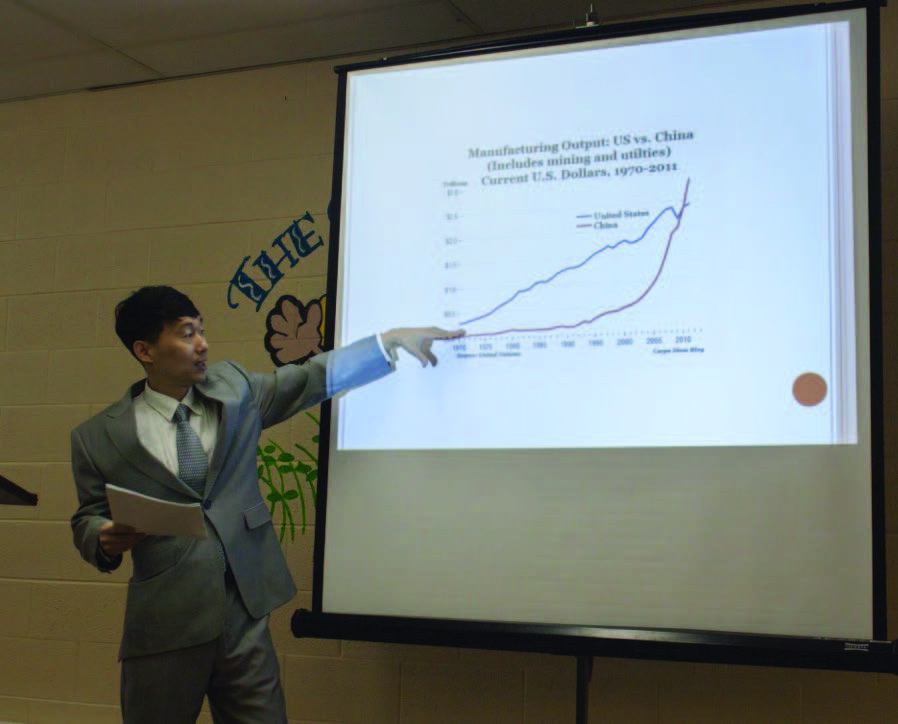Ji Young Choi, OWU politics and government professor, explains the rise of China’s power and economic status during the March 7 installment of the Great Decisions lecture series.
According to Ji Young Choi, China might develop the largest economy in the world, but that doesn’t mean it will become the number one global superpower.
Choi, a politics and government professor at Ohio Wesleyan, gave a lecture on the rise of China for the Great Decisions lecture series on March 7.
According to Choi, China has a lot of weaknesses, both internal and external, that could prevent the country from becoming the top global superpower.
Choi said the United States currently holds that position when it comes to gross domestic product (GDP) and military strength. China comes in second.
“The total gross domestic product for China in 2012 was $18.4 trillion,” Choi said.
However, according to Choi, China’s income per capita is only about $9,000. This is far behind the United States’, which was about $28,000 in 2012, according to the U.S. Census Bureau.
Another internal problem that negatively affects China, according to Choi, is the country’s location.
“(Its) number one problem is the geography,” Choi said in the lecture.
“(China) does not have access to sea (trade) routes, nor do they have many allies on any of their borders. Many of their neighboring countries are allies of the United States,” he added.
Choi explained that sea trade routes are necessary for a country to import and export goods, such as natural resources and raw materials.
Other problems that Choi thinks are contributing to China’s inability to become a dominant superpower include the country’s environmental issues, overwhelming population and domestic political instability.
A Closer Look at Chinese Youth
One audience member brought up the problem of “brain drain,” where China’s highly-educated youth go to study overseas and do not return to China.
Choi said “brain drain” is an issue because China spends a lot of money to educate its youth, but then they go to Western nations and to study and end up staying there because they enjoy the culture and lifestyle.
However, not all of China’s young people are escaping the country.
According to Choi, there is a fairly large percentage of the country’s youth population that is developing more of a sense of nationalism.
Choi said China’s political system has drifted away from communism, and that the country could now be more accurately described as an “authoritarian-capitalist” system.
“It seems to be working out pretty well so far,” Choi said.
Choi proffered several ways in which China could improve its global standing to get closer to becoming the top international superpower.
“China needs to change its ideology,” he said. “For the past couple of decades, they have had somewhat of a superiority complex.”
